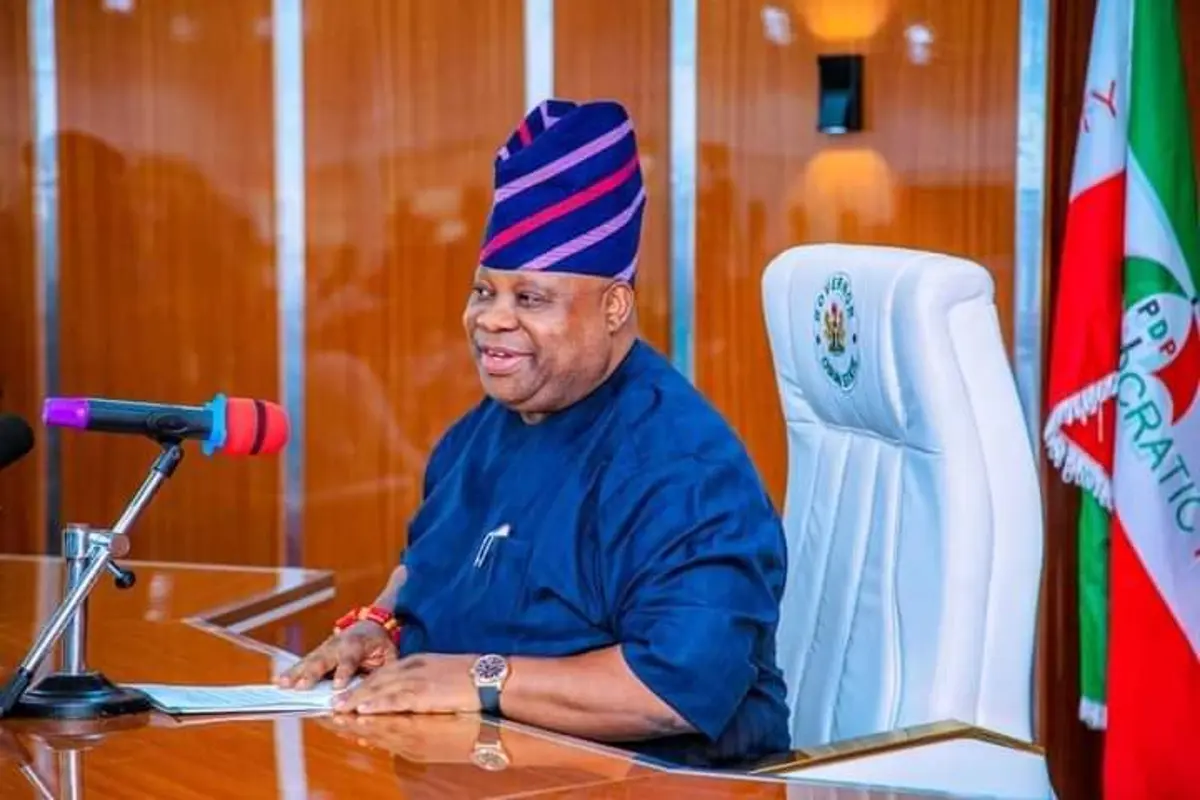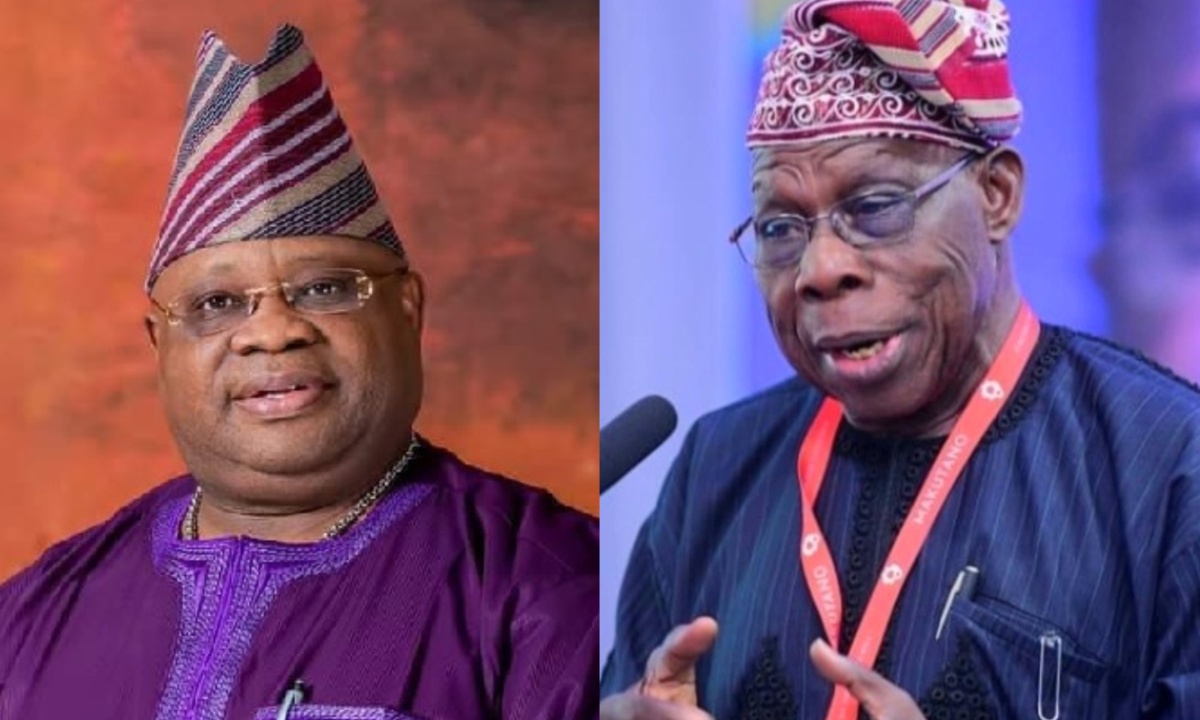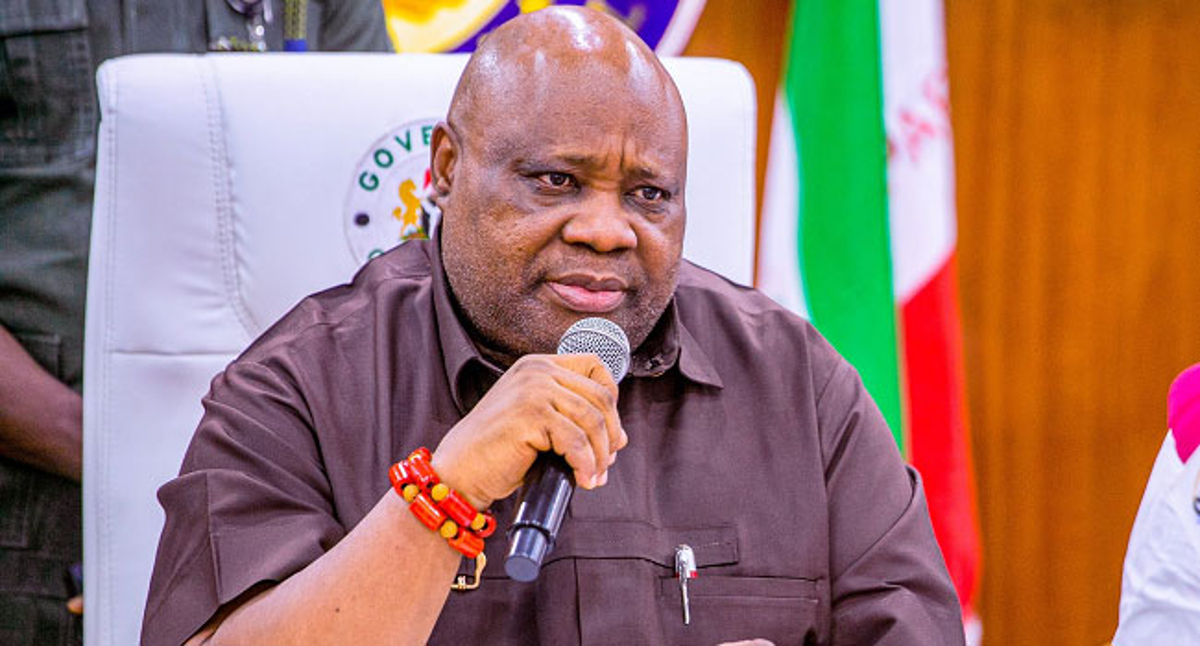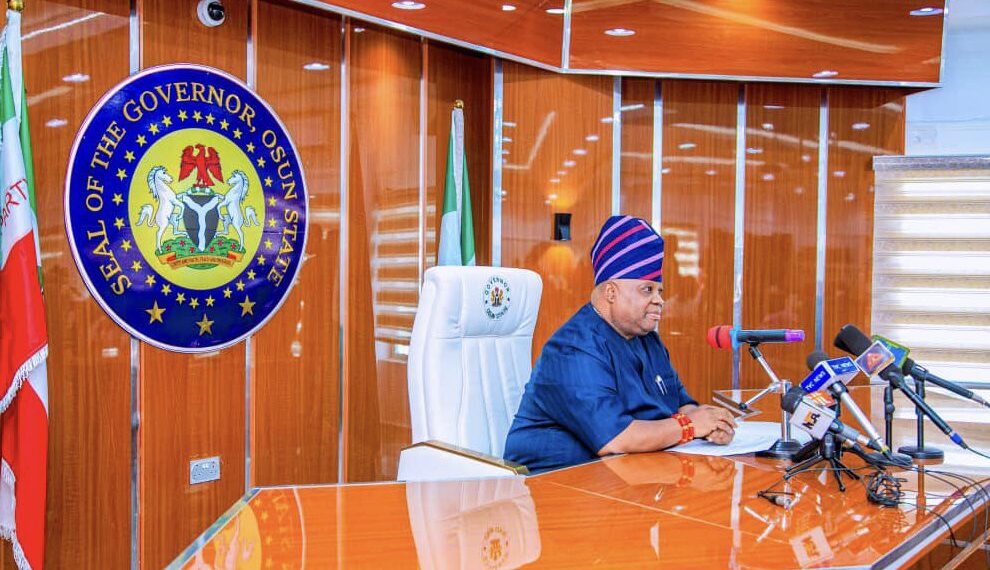Governor Ademola Adeleke’s budget proposal has already generated public interest, with many residents hopeful that the new fiscal plan will bring tangible improvements to their lives.
If approved, the 2025 budget promises to be a landmark for Osun State, potentially setting a new standard for public investment and governance in the region.
DAILY POST recalled that Adeleke presented a budget proposal of N390 billion to the Osun State House of Assembly on Wednesday.
Osun residents expressed mixed reactions to the ambitious N390 billion budget tagged ‘Budget of Reconstruction and Recovery’.
While some citizens lauded the initiative as timely and necessary, others expressed concerns over the feasibility and implementation of such a largescale budget within a challenging economic climate.
Many residents see the budget’s focus on infrastructure with a capital expenditure of N144.231 billion as a positive step towards Osun’s economic revival.
They believe that allocating a substantial portion to capital expenditure is crucial, especially for improving roads, healthcare, and education facilities.
One resident, Bisi Oyetunji, a businessman noted, “Our roads and schools need major repairs, and the healthcare system could use more attention. This budget seems to prioritise those essential services.”
Some citizens are particularly hopeful that the budget will address healthcare needs in the state.
Another resident, Adeola Akande, a civil servant, revealed that Osun’s healthcare facilities required urgent upgrades, especially in rural areas.
Akande stated, “If the proposed funds genuinely improve healthcare access, it could transform the lives of thousands who currently struggle to access basic medical services.”
Education advocates in the state are optimistic about Adeleke’s proposed investment in education.
They commend his administration’s decision to allocate funds to education improvements.
Mrs Olajumoke Adewale, a private school proprietress and teacher, stated, “This is a good start towards providing quality education for our children, but we hope the government ensures proper distribution of these funds.”
Some residents are however skeptical about the budget’s implementation given that past budget allocations yielded minimal visible results.
Another resident, Dayo Olusola, a student, worried that the same issues could persist.
He explained, “We have seen ambitious budgets before, but the impact on the streets is minimal. It is one thing to allocate funds and another to actually make things happen.”
Other Osun citizens are wary of the financial implications of such a large budget fearing that the administration may rely on borrowing, which could further deepen the state’s debt profile.
A civil societies advocate, Kunle Adeyemi, remarked, “This budget could put us in more debt if not properly managed. We hope the government has clear revenue plans to avoid burdening the state.”
Some resident also feel that the large budget could act as an economic stimulus, spurring job creation and boosting local businesses.
A local entrepreneur, Ayo Olaniyi, expressed optimism, saying, “An increase in government spending may create more business opportunities and employment, especially if contracts are awarded to local firms.”
The large recurrent expenditure allocation of N245.797 billion also elicited varied opinions with some residents seeing it as necessary to maintain government functions, while others believe the amount could have been reduced to focus more on capital projects.
Omowunmi Adeola, a civil servant commented, “I believe less should be spent on running the government and more on projects that will benefit citizens directly.”
Transparency in the budget’s execution remains a primary concern for Osun citizens, with some community leaders calling for independent monitoring to ensure that the funds are judiciously used.
A community leader in Ogo-Oluwa area of Osogbo, the state capital, who did not wish to be named, said, “We need more accountability. The government must involve the people and provide regular updates.”
Rural residents have also lent voices to the hopes that the budget will extend to their communities.
They urge the governor to focus on rural infrastructure, which they believe is often neglected in state budgets.
A Modakeke-based farmer, Adebayo Olusola, stated that, “Most resources go to urban areas, but the rural population also deserves roads, schools, and clinics.”
Some Osun residents also agree with Adeleke’s vision of sustainable development.
They say they are optimistic that if the budget is properly managed, it could set Osun on a path to long-term growth.
Maryam Bello, a communication professional, noted, “We need sustainable economic policies, and this budget gives hope if properly executed.”
The youths in the state have also voiced their hope that the budget will include provisions for job creation with many young people struggling with unemployment seeing the 2025 budget proposal as an opportunity for a fresh start.
Sola Adebisi, a graduate, said, “We hope this budget considers us and helps us find jobs right here in Osun.”
Osun residents while calling on the government to exercise caution and prudence, also urged the State House of Assembly to review the budget carefully to ensure realistic and beneficial allocations.
They insisted that it is a huge budget, and if mismanaged, it could lead to wastes.
They also want the lawmakers to scrutinise the budget to ensure it served the people effectively.
Osun residents react to Gov Adeleke’s 2025 budget proposal



